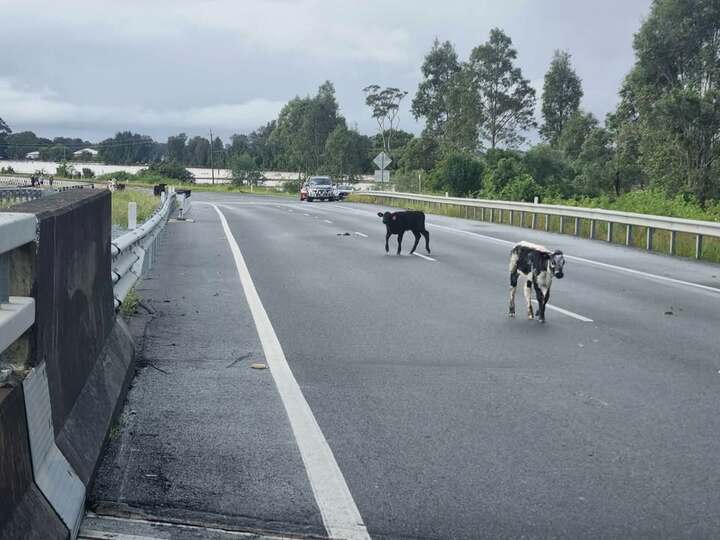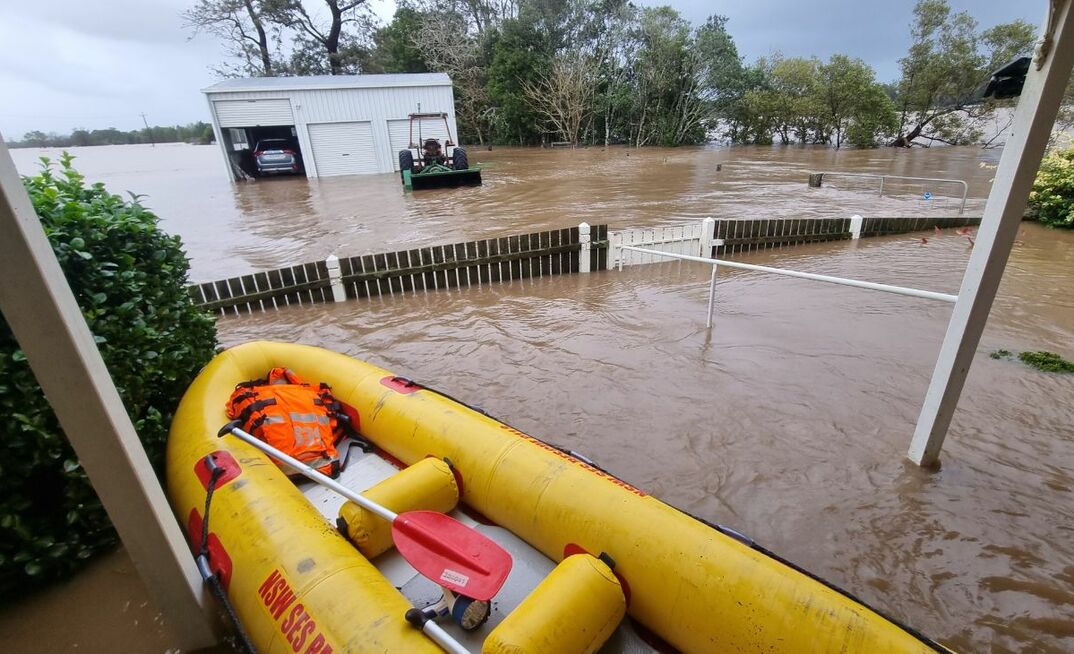THE Australian Defence Force will join emergency services personnel from across Australia and New Zealand in New South Wales tomorrow, as all levels of Government throw support behind the people and communities impacted by floods in the state's North Coast, Mid-North Coast and Hunter regions.
The Federal Government said today it is deploying Australian Defence Force personnel and members of Disaster Relief Australia to back NSW authorities with clearance, clean up and early recovery efforts, with funding also available to help farmers and other members of impacted communities get back on their feet.
Coordinated by the National Emergency Management Agency (NEMA), the defence force will join emergency services personnel from the Australian Capital Territory, Queensland, Victoria, Tasmania, South Australia, Western Australia, and New Zealand. Disaster Relief Australia will also help residents with clean-up efforts and damage assessments, and a Community Recovery Support Fund, jointly funded by the Federal and NSW Governments, will be made available to support councils with immediate clean up and restorations once impacts are known.
Jointly funded Commonwealth-State Disaster Recovery Funding Arrangements have been activated for 19 Local Government Areas – administered by NSW. This funding includes support for primary producers, help for small businesses and councils to repair damages, and the provision of emergency accommodation, with Personal Hardship Payments available to cover essentials including food, clothing and medicines.
YOU MIGHT ALSO LIKE
Other funding includes the Commonwealth's Disaster Recovery Allowance, with applications to open this afternoon, initially for those in Kempsey, Port-Macquarie Hastings, Mid-Coast and Dungog. Administered by Services Australia, this allowance provides up to 13 weeks of income support for eligible workers who have had their regular employment impacted.
SUPPORT FOR THE SAFE DISPOSAL OF LIVESTOCK

Meanwhile, the NSW Government is offering support to farmers and community members for the safe disposal of deceased animals.
Through the Agricultural and Animal Services Functional Area (AASFA) emergency hotline, landholders and community members can make requests for carcass disposal and report deceased livestock either on properties or that have been transported by floodwaters off properties and into community spaces.
There have been reports of significant on-farm losses, and NSW Department of Primary Industries and Regional Development (DPIRD) emergency management director, Leigh Pilkington, said the discovery of deceased livestock and pets can be very distressing to the community - especially livestock owners.
"While it's tragic and challenging circumstances, we thank landholders and community members for their reporting of these deceased animals so our team can make the appropriate disposal arrangements," Pilkington said.
The AASFA hotline (1800 814 647) is currently operating seven days a week from 8am to 6pm. Farmers and community members can also contact the hotline with urgent animal welfare concerns. DPIRD said there is currently a high volume of calls, with those related to emergency animal welfare being prioritised.
"AASFA will work with landholders, local councils, contractors and other government agencies to locate and safely remove any carcasses as quickly as possible," DPIRD said.
The correct management of deceased or unwell livestock after a natural disaster is important to minimise the impact on the environment, distress to owners and the public, and to reduce the risks to human and animal health through the spread of disease."
Assistance available through AASFA includes:
- animal assessment and veterinary support
- euthanasia of animals on welfare grounds
- emergency fodder (up to three days where there is an immediate animal welfare concern)
- emergency stock water (where there is an immediate animal welfare concern)
- livestock feeding and management advice
- aerial support for isolated or stranded livestock.
WHERE TO FIND SUPPORT
AASFA hotline: 1800 814 647
Landholders can stay up to date with the latest floods warnings by visiting ses.nsw.gov.au or download the Hazards Near Me App.
For New South Wales administered support, visit: nsw.gov.au/emergency/floods/recover
For Commonwealth administered support, visit: servicesaustralia.gov.au/disastersupport
























